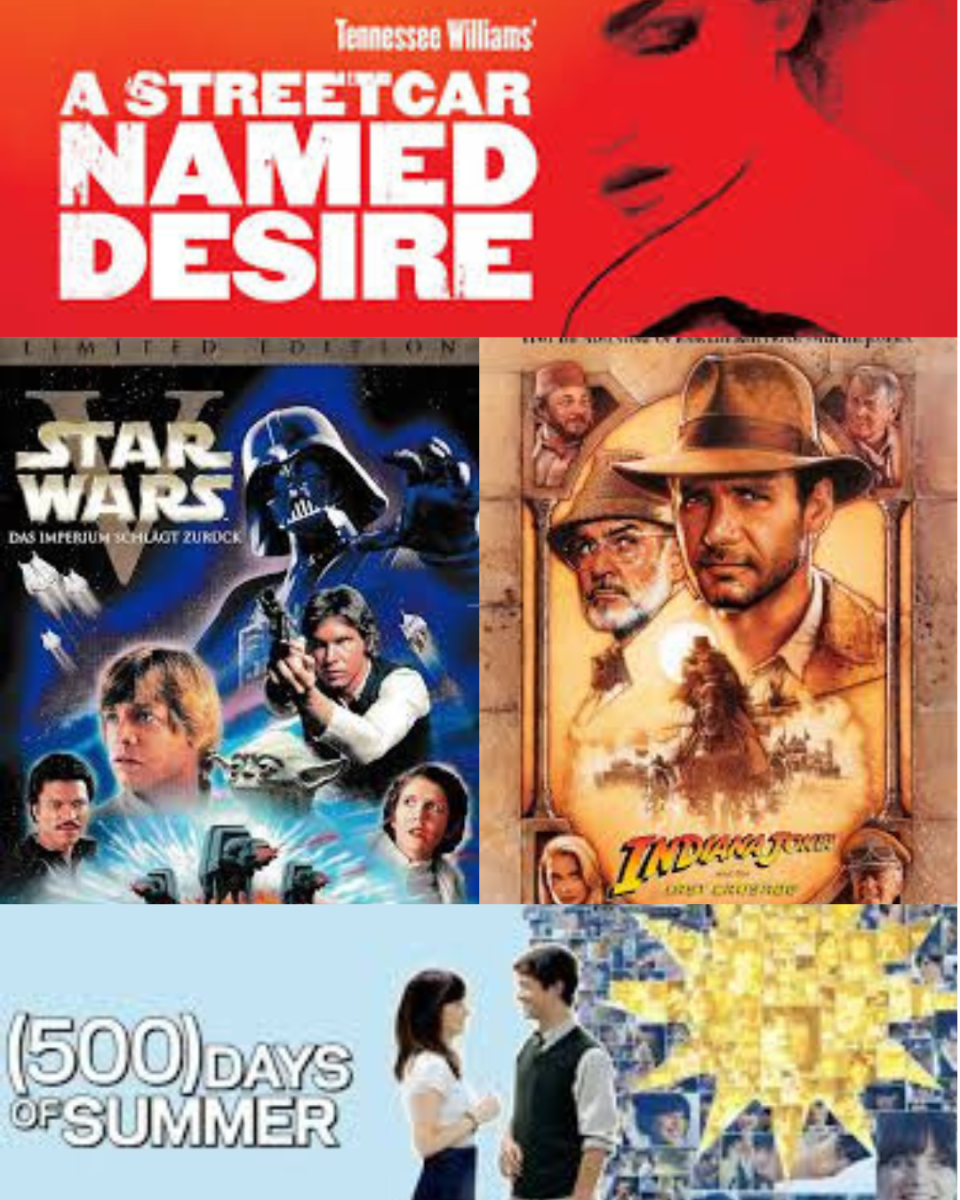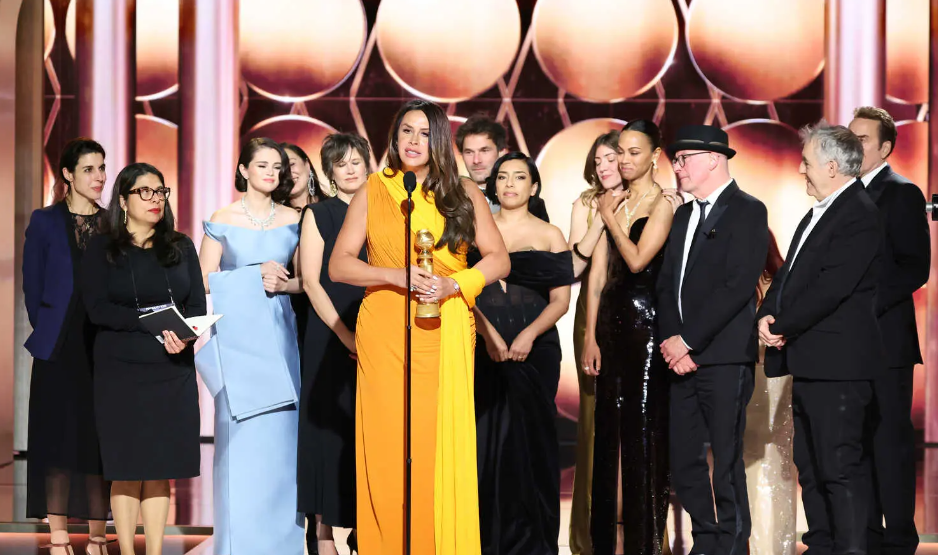
In every memorable love story, two star-crossed lovers are brought together by some inexplicable outside force, and their lives are altered forevermore. Be it by fate, chance, or sheer good fortune, the two unlikely lovers meet and are instantly enamored with one another. All aspects of life as they know it appear to be perfect; that is, until controlling parents pilfer a year’s worth of love letters, indestructible luxury cruise liners sink, or famous feuding families forbid the budding relationship (see any chick flick featuring Ryan Gosling or Leonardo DiCaprio for reference). Despite the various obstacles that inevitably emerge in order to test the couple’s resilience, the pair prevails and love ultimately triumphs. In every classic romance, the couple in question has to be emotionally invested. They should be passionate. There exists an unbreakable bond— a magnetic attraction. Simply stated, their relationship must be real.
Or does it?
Director Spike Jonze’s Her tells the story of Theodore and Samantha, a couple who appears to enjoy the average, everyday romance of a typical American couple— assuming, of course, that a man’s emotional infatuation and ensuing sexual relationship with his personal computer is in any way considered “normal” by today’s standards.
In Jonze’s most recent cinematic masterpiece, Theodore Twombly (Joaquin Phoenix) is an awkward introvert whose social ineptness prevents him from finding love the second time around. In denial of his impending divorce from longtime lover Catherine (Rooney Mara), Theodore sulks around a futuristic Los Angeles, numb to his lively city surroundings and void of the happiness he once felt daily. If the absence of his other half wasn’t enough of a heartache, Theodore’s job as head writer for a company who specializes in the creation of “handwritten” love notes puts him in a somber mood, for these sappy sentiments are yet another reminder of Theodore’s increasing loneliness. Fed up with his unrequited love and after an impulse buy, Theodore installs his own personal Operating System, or “OS,” for short. This computer—intended to provide people with an intelligent acquaintance with the capabilities of a computer and the heart of a human— is programmed to fit the buyer’s personality perfectly. After answering a short series of questions and syncing his OS earbud to the hard drive, Theodore anxiously awaits the arrival of his computer companion. As if by fate, “Samantha” (voiced by Scarlett Johansson) is assigned as Theodore’s personal virtual assistant.
In awe of his OS’ realistic attributes— such as genuine compassion, a refreshing sense of humor, and the ability to read and respond to human emotions—Theodore finds himself slowly falling for Samantha’s sweet persona. He starts to seek refuge from his real-life woes—such as stressful days at work, drama regarding the divorce, and his ever-increasing loneliness— by losing himself in conversation with the OS. Discussing life’s greatest mysteries, love’s impact on the soul, and debating whether having a physical body determines an individual as a “real” person, the two develop as individuals as their unconventional relationship drives them to discover more of the world than they had ever imagined.
Known for his bizarre, fantasy-laden films, Jonze continues his unconventional cinematic streak with a twisted tale of boy-meets-girl— or rather, boy-meets-artificially-intelligent-computer program-and-falls-in-love-with-it-as-if-the-inanimate-object-was-actually-a-flesh-and-blood-human-being. Both a profound love story and a criticism of man’s ever-increasing dependence on technology, Her emerges as one of the most beautiful and simultaneously unnerving motion pictures of the twenty-first century. Despite experiencing the heartwarming evolution of a seemingly perfect relationship, viewers are reminded of the unfortunate effects of technology on an individual. Throughout the film, though Theodore is almost always in the presence of his beloved Samantha, the pathetic protagonist grows increasingly distant from the world around him and willingly detaches himself from reality. Ironically, it seems as though the very debilitating loneliness that Theodore’s attempts to avoid through the purchase of Samantha is augmented as a consequence of not having important elements of a real relationship to fulfill his needs. While he may be comforted emotionally by the kind words of his computer, the initial sparks he felt with Samantha seem to extinguish themselves once Theodore acknowledges his inability to see or feel this virtual lover. His initial embarrassment of dating an OS, coupled with the amorphous intangibility of his girlfriend, forces Theodore to retreat further into himself in times of need and suffering.
The film, despite its bizarre plot and off-beat ambience, is nothing short of fantastic. The cinematography is exceptional, as odd camera angles and peaceful scenes of untainted nature in a world predominantly permeated by technology create an overwhelming atmosphere of intoxicating serenity. Even the saddest scenes are spectacular, for Jonze’s juxtaposition of opposing emotions—namely the mess of frustration and joy throughout his short-lived marriage—is utterly ingenious. Soft piano riffs accompany melancholy flashbacks of Theodore’s past pain and suffering are poignant and heartbreaking, but beautiful nonetheless. The free-spirited feel of the indie-style film succeeds in reminding viewers not to take themselves too seriously while simultaneously encouraging them all the to break free of the tethers that bind one to the past and prevent individuals from progressing. Filled with a unique sense of a complex simplicity, Her is a concoction of social criticisms, contradictions, and conundrums.
Yet while the film may have seemed on the surface perfect, the Spike Jonze Flick certainly contained some unnecessary and uncomfortable elements. Most attempts to add comedy fell flat, for the tongue-in-cheek humor translated terribly onto a character as intentionally dull and two-dimensional as Theodore. Additionally, the intimate scenes between the human and his computer did little to develop and imitate a two-person relationship like Jonze intended. Therefore, the production would have benefitted overall if Jonze omitted the awkward intercourse over the phone or the surrogate hired by Samantha to represent a physical being for Theodore to have and to hold as a stand in for Samantha’s nonexistent body.
Despite its peculiar premise, the cast of Her delivers in regards to their impeccable acting. Phoenix flawlessly captures Theodore’s quirkiness with his display of a rather pathetic timidity. Assuming the role of Twombly’s closest friend and motivator Amy, Amy Adams plays an impressive part as the eternal optimist needed as a foil to compensate for Theodore’s seemingly perennial pessimism. Johansson, though never physically present during shooting, wins the hearts of viewers by transforming an potentially disastrous character into a loveable entity. Contributing charm and grace to an extremely difficult part, Johansson successfully shatters any preconceived notions of a potentially forgettable performance.
Perhaps it is the unconventionality of the plot that makes the film so brilliant. Or maybe the movie’s cinematography and accompanying instrumentals induce an atmosphere of profound beauty, which makes it so ingenious. Or the greatest element could be the unquestionable chemistry between a man and his computer— an unlikely love story that foreshadows a dismal future marked by an increasing infatuation with technology. Regardless of the reason, Her is an Oscar-worthy film capable of captivating even the least tech-savvy individuals.







